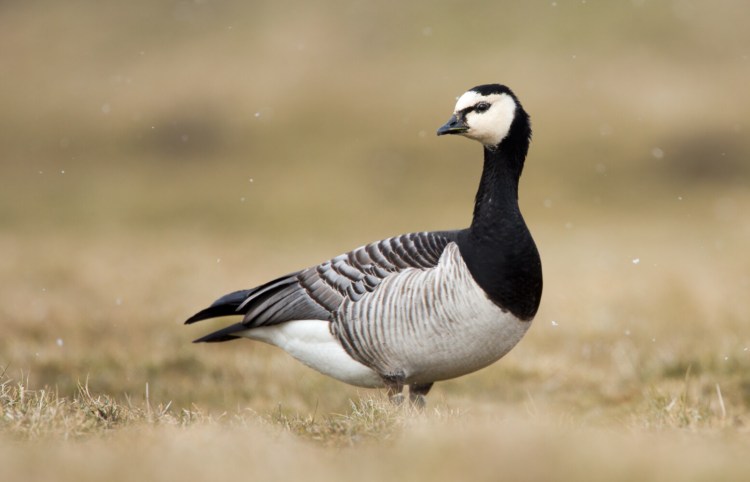Spurred on by comments and questions on my last column on the origins of bird names, I will continue with a variation on the theme. This week I will concentrate on bird names that are based on faulty observations. I am conflicted about these misleading names. The scientist in me cringes at some of these, but the poet in me is delighted.
Let’s start with the group of birds that include our common nighthawk and Eastern whip-poor-will. These nocturnal birds are classified into an order often referred to as goat-suckers. What’s up with that?
We need to go back to the 18th century when the Swedish biologist, Carl Linnaeus, was working on a catalog of all living things. He came up with the modern classification system of nested groups (classes, orders, families, genera, species). He had museum specimens of the undescribed European nightjar, a close relative of our whip-poor-will.
Linnaeus was aware of reports that these nocturnal birds flew into barns at night to suckle female goats, essentially stealing milk from the nanny goat’s kids. Of course, we now know that this claim is a myth based on no verifiable evidence. Nevertheless, Linnaeus unwittingly perpetuated the myth by assigning the nightjar to a new genus Caprimulgus that translates into English from the Latin as goat-sucker.
Scientific names are cast in stone so it is not possible to replace Caprimulgus with a less confusing genus name. But we can change common names. Many ornithologists use nightjars as a name for this group of birds rather than goat-suckers. The loud song of a whip-poor-will after dark can certainly be a jarring experience for an unsuspecting person.
From October to December, Maine birders keep an eye out for rare geese among the thousands of migrating Canada geese. One of those rarities is an Old-World species called the barnacle goose. We have six accepted records of this handsome goose from Maine.
How did the barnacle goose get is common name? The barnacles in this story are not the conical, acorn barnacles that are so abundant on rocky intertidal shores in Maine. Rather, the barnacles are stalked or goose-neck barnacles. These barnacles often attach to floating logs and so can be found far from land.
We attribute Gerald of Wales, a historian and church official in the 12th century, for perpetuating the myth that the stalked barnacles are baby barnacle geese that will slip their calcareous skeletons and become free-living barnacle geese. Versions of this myth had been kicking around for nearly a millennium so we can’t pin all the blame on Gerald.
This myth may have arisen because bird migration was not recognized as a feature of the biological calendar. The disappearance of barnacle geese and their subsequent return demanded an explanation. The alternation of a barnacle stage and a goose stage provided an adequate explanation for some folks in the Middle Ages and beyond.
Some European swallows were the subject of a similar fanciful explanation, stemming from the same ignorance of migration. As swallows prepare to migrate, they often coalesce into large flocks, sometimes near bodies of water. Large numbers one day and then none the next. What could the explanation be? The myth is that they go underwater and spend the winter beneath the ice of lakes. Fortunately, this debunked explanation has not been perpetuated in either the scientific or common names of these birds.
A more recent observation explains the evening grosbeak’s name. In 1823, a Major Delafield, a United States Boundary Agent, noted that these birds approached his tent at twilight and began to vocalize loudly. He inferred that evening grosbeaks spend the day in dark retreats, only leaving them at the approach of night.
Of course, evening grosbeaks are active during the day and roost at night like most perching birds. Nevertheless, this misunderstanding lives on nearly 200 years later in the common name of this bird.
Herb Wilson taught ornithology and other biology courses at Colby College. He welcomes reader comments and questions at whwilson@colby.edu.
Send questions/comments to the editors.



Comments are no longer available on this story